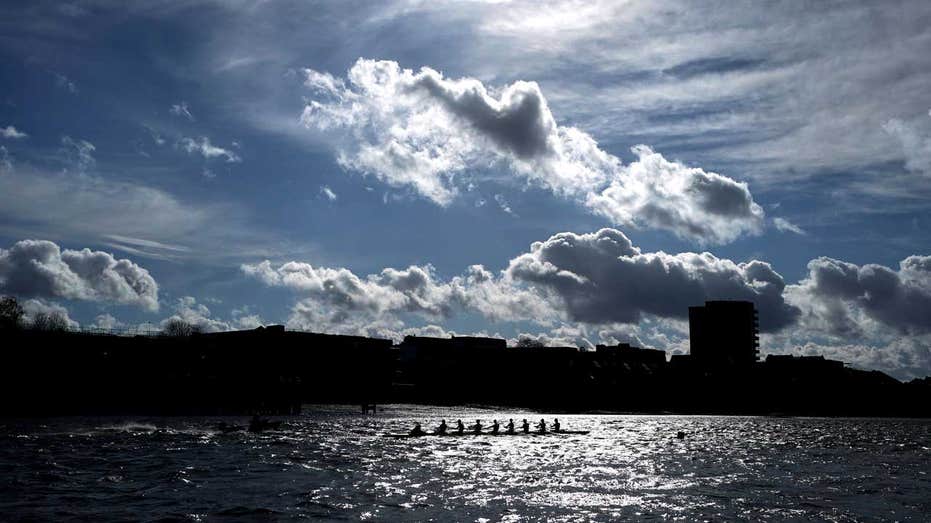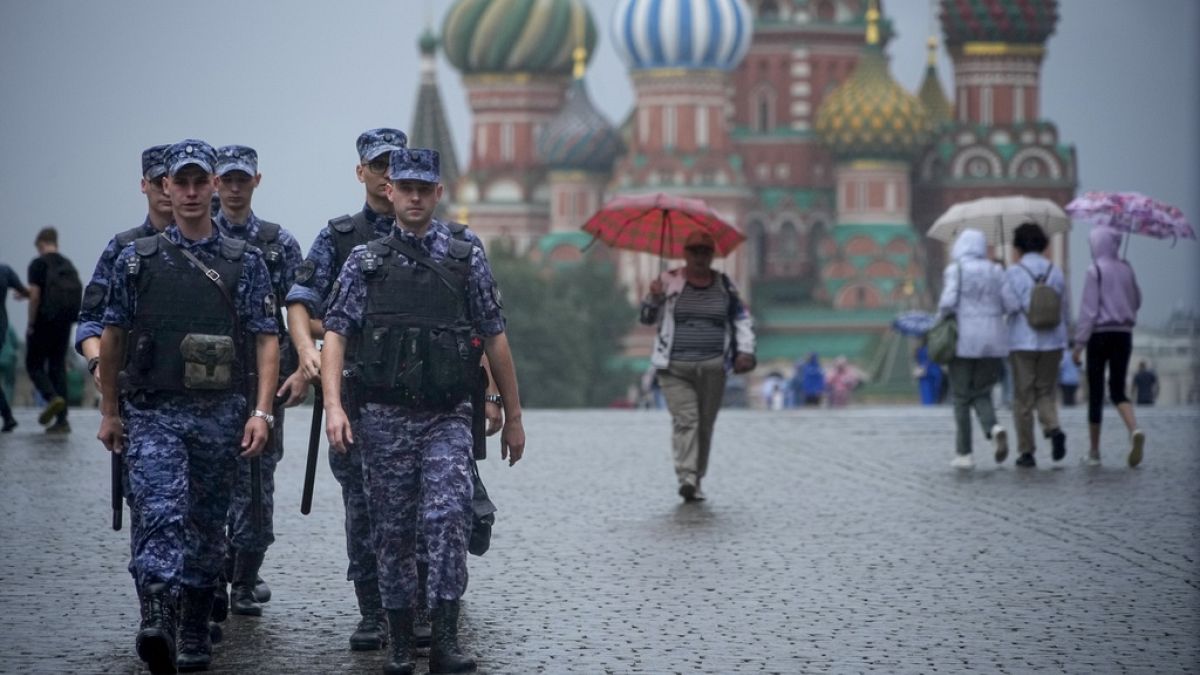Oxford, Cambridge rowing teams warned about polluted waters ahead of Boat Race: It's a 'national disgrace'
Oxford's crew coach is taking aim at one company who is allegedly responsible for a recent spike in contamination levels within London's Thames River.

The coach of Oxford’s crew taking part in the Boat Race described the pollution in London’s River Thames as a "national disgrace" as the company responsible for its upkeep faces mounting financial difficulties that critics say will need it to be taken back into state hands.
Testing by a campaign group has found high levels of E.coli along a section of the Thames in southwest London that will be used for the historic race on Saturday.
Crew members have been warned about the risks of entering the water and advised to use a "cleansing station" at the finish area. The pollution has also cast doubt on the post-race tradition of throwing the winning cox into the water.
HEALTH WARNING ISSUED TO BOAT RACE CREWS OVER LEVELS OF E.COLI IN THAMES
It comes as figures released by the Environment Agency showed the level of sewage spills into England’s rivers and seas by water companies more than doubled in 2023 compared to 2022, reaching 3.6 million hours of spills in 2023 compared to 1.75 million hours in 2022.
There has been no suggestion that the annual Boat Race between storied universities Oxford and Cambridge that dates to 1829 will not go ahead. The women's race will precede the men's event along the same 4.2-mile section of the Thames.
But Oxford coach Sean Bowden has lamented the state of the water.
"It’s a national disgrace, isn’t it?" Bowden posed. "It would be terrific if the Boat Race drew attention to it. We are very keen to play a part and we recognize we have a role and a responsibility to it.
"Why," he added in British newspaper The Daily Telegraph, "would you want to put your kids out in that?"
Invariably, the focus has turned to whether the winning crew will dunk its cox into the Thames at the end of the race.
"If there’s a health and safety problem, I don’t think we’ll be throwing him in because we don’t want to risk that," said Harry Glenister, who has rowed for Britain and will compete for Oxford.
"It’s just too much of a risk. We support whatever the Boat Race is saying about the conditions in the water. We just hope we’ll win and then we’ll decide."
Cambridge has won four of the last five men’s races and leads the rivalry 86-81.
Cambridge has also won six straight in the women’s race.
E.coli bacteria normally live in the intestines of healthy people and animals. Most strains are harmless, cause relatively brief diarrhea and most people recover without much incident, according to the Mayo clinic. But small doses of some strains — including just a mouthful of contaminated water — can cause a range of conditions, including urinary tract infection, cystitis, intestinal infection and vomiting, with the worst cases leading to life-threatening blood poisoning.
River Action, a campaign group, said the testing locations suggested the source of pollution was from utility company Thames Water discharging sewage directly into the river and its tributaries. Thames Water, Britain’s largest water company, is facing huge pressure to clear up the river, though it insists that the elevated levels of E.coli are not necessarily its fault.
"I would point out that E.coli has many different sources," the company's recently appointed chief executive Chris Weston told the BBC. "It is not just from sewage, it is also from land run-off, it is from highway run-off, it is from animal feces. All of those things contribute to the problem and I am absolutely determined that at Thames, we will play our part in cleaning up the problem and so the Thames is a river that people can use as they would like to everyday."
Under a plan drawn up last summer, Thames Water was asking investors to inject close to 4 billion pounds ($5.05 billion) into the business over the next five years. However, on Thursday shareholders refused to make the first payment of 500 million pounds ($630 million) without a big increase in consumers’ water bills, a demand that the industry regulator denied.
Weston insisted that it was "business as usual" at the debt-laden company as it has enough financial resources to survive into next year, by which time he hoped a new funding arrangement will have been agreed. However, the news has raised speculation that the company may have to be nationalized.
The parlous state of many of Britain's rivers, canals and coastlines is set to feature heavily in the general election, which is expected to take place in the next few months. The main opposition Labour Party, which is way ahead of the governing Conservatives in opinion polls, has said it will make sure that "new investment comes through to fix the broken sewage system without taxpayers being left to foot the bill."
What's Your Reaction?
















